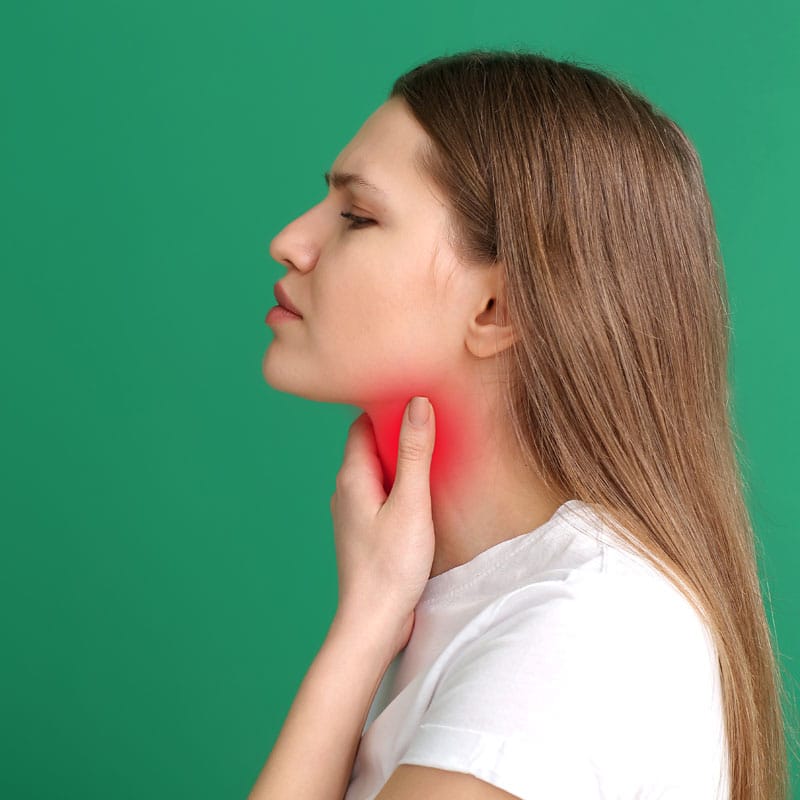An allergic reaction occurs when the body’s immune system becomes confused and thinks a particular food is a toxin or invader. When you ingest this food, the immune system sends out immune cells and chemicals to defend the body from the supposed invader. Food allergies are common in babies and children; however, they can occur at any age. In fact, you could’ve eaten a particular food for years and all of a sudden develop a food allergy.
Approximately 32 million people in the United States suffer from food allergies. Food allergies cause a number of unpleasant symptoms, some of which can be deadly if not dealt with immediately.
What is the Difference between a Food Allergy and a Food Intolerance
Many people think that a food allergy and a food intolerance are the same thing; however, they are quite different from one another. An allergic reaction to a particular food involves the immune system and can cause life threatening symptoms. Conversely, a food intolerance involves the gastrointestinal system and causes digestive problems. Although a food intolerance may be unpleasant, it typically does not cause dangerous symptoms.
What are the Risk Factors of Food Allergies?
Food allergies often run in families; however, it is impossible to ascertain whether a child will inherit a food allergy. Some siblings have the same food allergies while others do not have any food allergies, or they have completely different food allergies.
If you have other allergic conditions like eczema or hay fever, you are at a greater risk of developing a food allergy. Your risk of developing a food allergy also increases if you have asthma. If you are at risk of developing a food allergy, you should talk to your doctor and get a complete health exam.
Understanding the Signs of An Allergic Reaction
Your immune system is designed to help maintain good health by fighting off infections and other things that are a danger to the body. Unfortunately, the immune system can become deregulated and begin activating its defense system when you consume a certain kind of food or a substance commonly found in foods, resulting in a food allergy. Food allergy symptoms cause a range of symptoms from very mild to extremely severe. Furthermore, you may have a mild reaction one time and the next time have a severe reaction, which is why it is essential that you avoid any foods that you are allergic to.
Understanding the Severity of Food Allergies
Food allergy symptoms range in severity. Many people have very mild symptoms, while others experience extremely severe symptoms. The severity of your symptoms can also vary from time to time.
What Are the Top Signs of Food Allergies?
1. Hives
Have you ever had skin colored or red raised bumps that appear quickly and disappear just as fast? It may have been hives. Hives can range in severity from mild to quite severe. Approximately, 20 percent of people will experience hives during their lifetime.
The best treatment for hives is avoiding the food that caused your hives. Do not rub or scratch your hives because that can worsen your hives. Instead, try soaking in a lukewarm bath to help ease the itch. Avoid wearing tight clothes as this can further irritate your skin. Use aloe vera gel to help soothe your hives and protect the skin from further damage.
2. Itching and Swelling in the Mouth or Throat
Having allergies can increase the risk of developing food allergies. For example, if you are allergic to ragweed, you may develop an allergy to melons or bananas. This is caused by cross reactivity.
Cross reactivity occurs when the immune system cannot tell the difference between one protein and another. In the example above, the protein in ragweed pollen is similar to the protein found in bananas and melons. When you are exposed to either of these food items, you will experience an allergic reaction.
The allergic reaction due to cross reactivity tends to be mild. The symptoms often appear immediately after eating the raw fruit or vegetable; however, the reaction can occur more than an hour later. Typically, cross reactivity causes oral symptoms like itching or swelling of your tongue, face, or lips. It is rare for a more severe reaction like anaphylaxis or severe throat swelling to occur.
3. Coughing, Shortness Of Breath, and Wheezing
When you eat a type of food that you are allergic to, you can experience a variety of respiratory symptoms. Food allergies can cause wheezing, coughing, or shortness of breath. When you ingest a food you are allergic to, your immune system will activate. When this occurs, it can cause inflammation of your respiratory tract. Inflammation is the body’s way of protecting itself from damage.
When inflammation occurs in the respiratory tract, you may experience wheezing or shortness of breath when your bronchial passages become inflamed. Coughing is the body’s way of expelling excess mucus from the lungs; therefore, coughing is a common symptom when you have an allergic reaction to something you have consumed.
4. Anaphylaxis
Anaphylaxis is a severe, life threatening allergic reaction that can cause a number of deadly symptoms. You may experience a sudden drop in your blood pressure, which causes dizziness or fainting. Your throat may swell, and you may experience difficulty breathing. You may also experience a reduced heart rate and your body may go into shock.
Anaphylaxis often occurs almost immediately after ingesting a food that you are allergic to. This allergic reaction can be fatal and must be dealt with promptly. In order to counteract the symptoms of anaphylaxis, an injection of epinephrine must be administered immediately.
5. Digestive Discomfort
When you eat a food that you are allergic to, it can cause severe digestive discomfort. As the food travels through the digestive tract, it damages the small intestine. This damage can prevent your body from absorbing essential vitamins and minerals, resulting in nutritional deficiencies. In addition to this, damage in the intestinal tract can cause gas build up, diarrhea, vomiting, nausea, and abdominal discomfort.
The best way to prevent digestive discomfort is to avoid eating problematic foods. If you eat a food that causes digestive distress, avoid eating it in the future as this could be a sign of an allergic reaction. There are several over the counter medications that can relieve some of your symptoms; however, most people find the worst of the symptoms pass within a few hours.
6. Difficulty Swallowing
When a food you are allergic to is consumed, it can cause excess mucus to form in your nasal passages, throat, and respiratory system. The thick mucus along with inflammation can make it difficult to swallow. You may also have burning and pain in the back of your throat, experience hoarseness, have nasal stuffiness, or have difficulty speaking.
If you begin feeling like it is difficult to swallow, try drinking a warm drink such as hot tea or coffee. The warmth from these drinks will help thin mucus secretions. The warmth will also soothe swollen throat tissues and help relieve your throat pain.
7. Symptoms Occur as Soon as You Eat One Bite
Typically, food allergies occur within minutes to two hours after ingesting an offending food. The symptoms can range from coughing, hoarseness, throat tightness, burning or tingling in your mouth, wheezing, or anaphylaxis.
In rare instances, a reaction can be delayed by as much as four to six hours. Delayed reactions often occur when the main symptom of a food allergy is eczema, hives, or digestive discomfort.
Natural Remedies for Food Allergies
The first thing you should do if you have a food allergy is to remove the offending food from your diet. Then, you will want to eliminate pro-inflammatory foods from your diet. These include processed foods, sugar, artificial flavorings, and gluten.
After eliminating the problematic food, increase your consumption of healthy foods like green leafy vegetables, bone broth, almond butter, seeds (chia and flax seed), and probiotic rich foods like sauerkraut, yogurt, and kefir.
Incorporate vitamin B5 supplements, digestive enzymes, and probiotics into your daily supplement regimen. Peppermint and eucalyptus oil can be applied topically to help counteract the effects of food allergies on the body.
What to Do if You Haven’t Identified Your Problem Foods
If you are experiencing signs of food allergies, it is important to determine which foods are causing your symptoms. Elimination diets are short term eating plans that help to identify the common foods that cause allergic reactions. Once all common allergenic foods are removed from the diet, you will begin slowly introducing them one by one to help determine which ones are causing allergic reaction symptoms like diarrhea, hives, and excess mucus build up.
What Are the Most Common Food Allergens?
Although there are many different foods that can cause an allergic reaction, these 8 foods are major food allergens:
- Eggs
- Fish
- Milk and/or dairy products
- Peanuts
- Shellfish
- Soybeans
- Tree nuts
- Wheat
Food allergies occur when the immune system classifies a specific food as harmful. Your immune system triggers the release of histamine. When this occurs, a plethora of symptoms can occur, including digestive issues, swallowing problems, shortness of breath, hives, itching, and throat swelling. Food allergies cause an acute inflammatory reaction in the body, resulting in inflammation in the respiratory tract, throat, oral cavity, and digestive tract.
If you have had a reaction to a food, it is important to talk with your holistic doctor about food sensitivity testing. Food allergies occur when your immune system identifies a food as a foreign invader and causes a variety of unpleasant symptoms. As the immune system sends out antibodies and histamines, inflammation can occur.



















